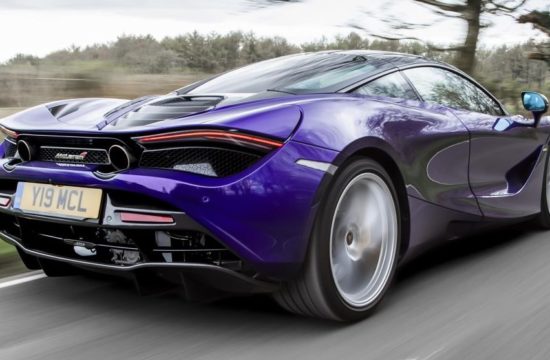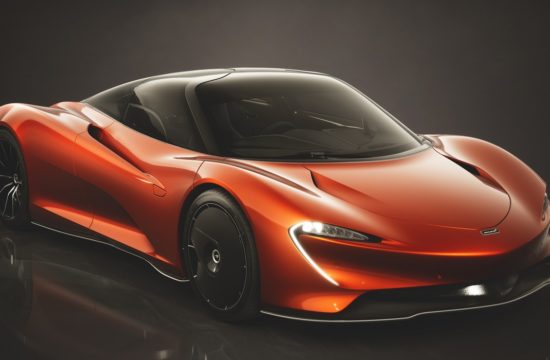Just as the first production unit of the McLaren P1 rolls off the assembly line and gets ready for pick up by its rich owner, the British super car firm confirms the official performance figures of their new creation. These numbers will feed forum junkies for a while, until the P1 face its adversary – LaFerrari and Porsche 918 – in the real world.
So let’s get to it. The 3.8-litre twin turbo V8 petrol engine and the lightweight electric motor in the McLaren P1 take the hyper car from 0 to 100 km/h (62 mph) in 2.8 seconds. That is slower than the Bugatti Veyron, and on the par with cars like the Lamborghini Aventador that cost a million dollar less.
After 100 km/h is where the P1 suddenly starts to shine. At that speed the turbochargers are in full swing, and the torque of the electric motors has made its way to the rear wheels, catapulting the car to 300 km/h (186 mph) in just 16.5 seconds. That is a full 5.5 seconds quicker than the legendary McLaren F1.
Then when you hit 350 km/h the limited cuts in, and you wonder why your $1.3 million car is no faster than that bloody Aventador. It is also slower than all Veyrons, Koenigssegs, and even its father, the McLaren F1, which achieved 386 km/h many many years ago.
We have no idea why McLaren held back with the P1. It could be because neither Porsche or Ferrari are planning to make their hyper cars faster than that, or it may have something to do with the car’s fuel efficiency, which is fantastic by the way. The P1 returns 34.0 mpg (8.3 l/100km) on the EU combined cycle, with CO2 emissions of 194 g/km.
McLaren P1 Performance Figures:
| Acceleration | |
| 0-100km/h (62 mph) 0-200km/h (124 mph) 0-300km/h (186 mph) Standing quarter mile (400m) V Max |
2.8 seconds 6.8 seconds 16.5 seconds 9.8 seconds @ 245 km/h (152 mph) 350 km/h (217 mph) electronically limited |
| Braking | |
| 100-0 km/h m (ft) [sec] 200-0 km/h m (ft) [sec] 300-0 km/h m (ft) [sec] |
30.2 (99) [2.9] 116 (380) [4.5] 246 (806) [6.2] |
| Fuel efficiency | |
| mpg (combined) litres/100km |
34.0 mpg 8.3 l/100km |
| Emissions | |
| CO2 | 194 g/km |










